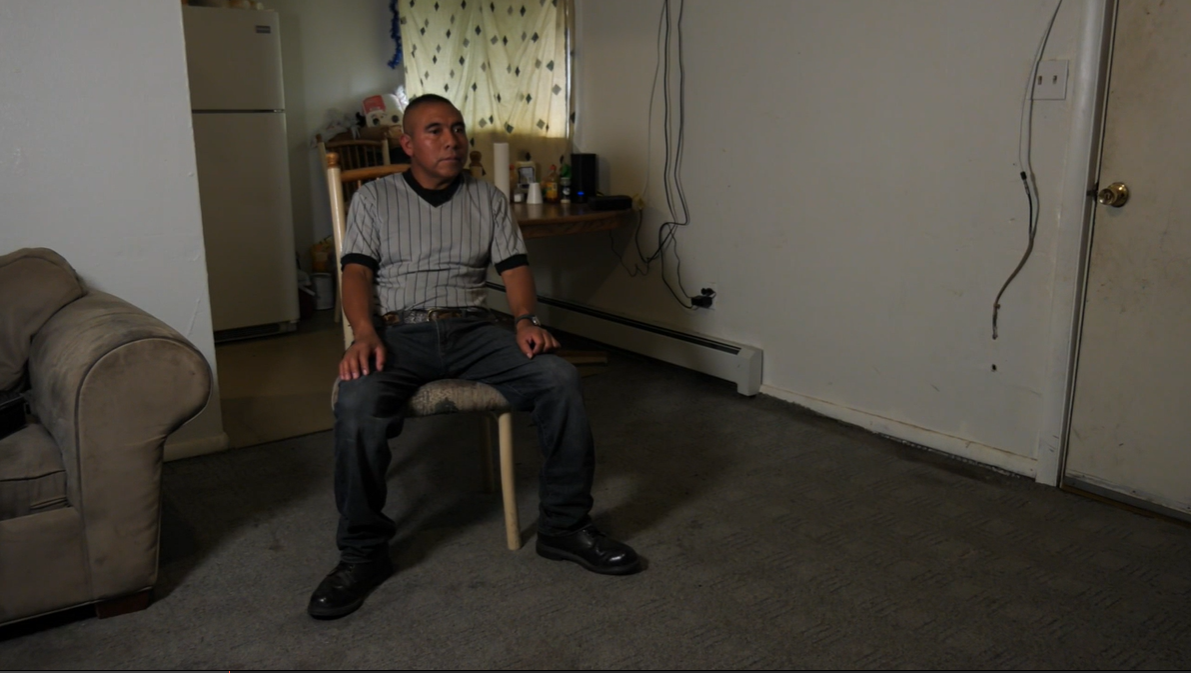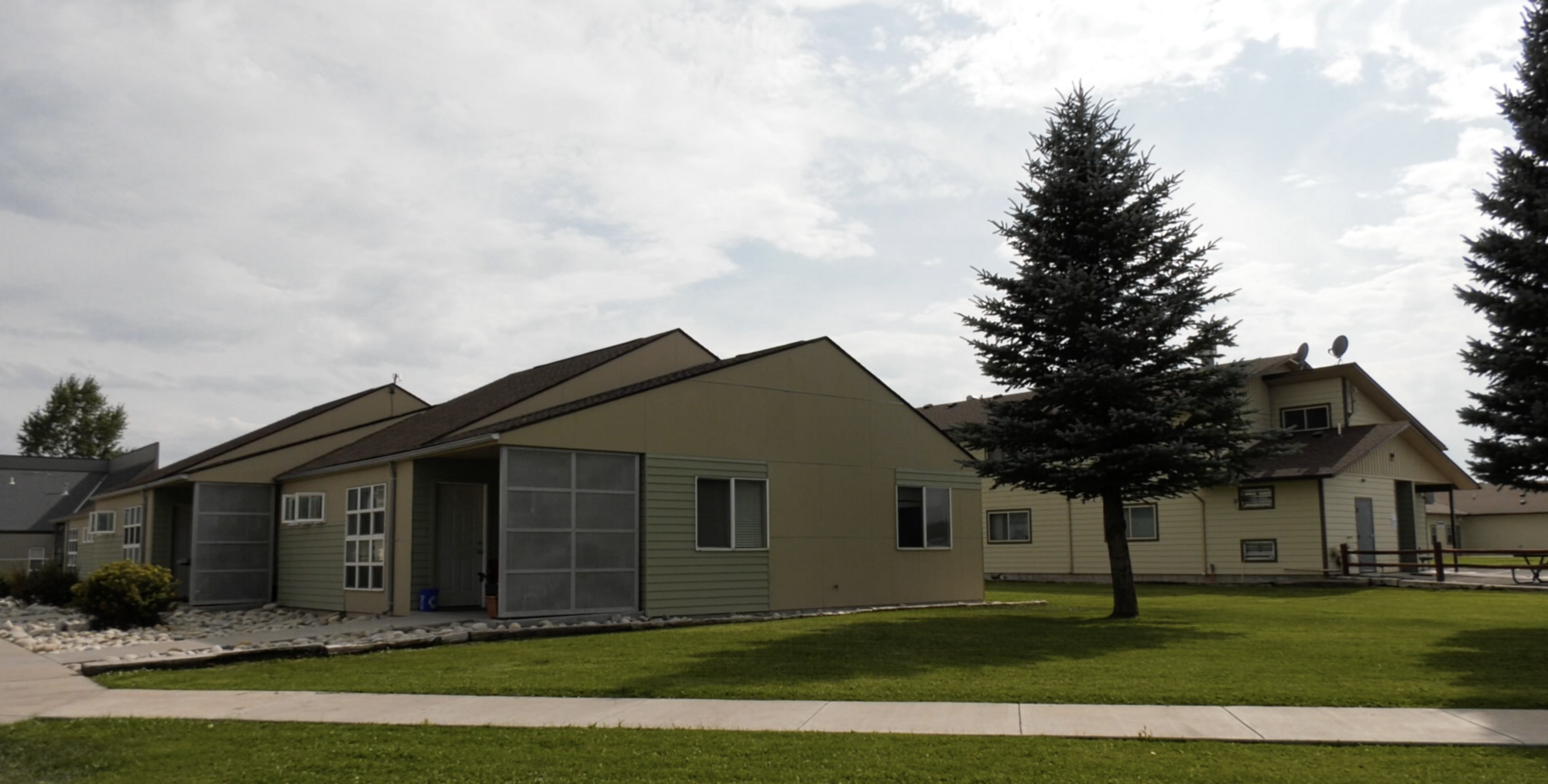Housing for Farmworkers: 'The demand’s there, but the housing isn't'

ALAMOSA, Colo. — Just before 8 p.m. in Alamosa, Colorado, many farmworkers were arriving home from work to a mobile home park.
Amalia Baltazar, Promotora del Valle de San Luis and advocate for agricultural workers, showed Rocky Mountain PBS around the neighborhood. She shared what she saw when she recently visited one of the homes.
“There's no heating. There's no air. I mean, there’s holes in their floor and mom and dad are worried about [their children] getting hurt,” said Baltazar.
Baltazar says people work 10 to 16-hour work shifts almost daily and yet, she says this is often the best they can afford to live in.
When we asked farmworkers about their living conditions, many people, like Rafael Cruz Garcia, said they’re blessed to have what they have. Garcia has been a farmworker in Alamosa for 15 years. He lives in a small apartment with his son.

“I like it here. First of all, there's work. Secondly, it's very quiet here and there aren't a lot of issues,” he told us in Spanish.
Life in Colorado is very different from his home country in Guatemala, Garcia explained. Two of his sons live here but other than that, he has no other family nearby, which also means living apart from his wife.
Still, he told us he is happy to live in a place with a lot of work. “We came to work, not to pass time,” Garcia said.
Baltazar says often, farmworkers feel similar to Garcia about their housing and living conditions, because they compare it to their home countries.
“They have families in their countries that might not have a roof over their head, that might not have a plate of food to feed their children at the end of the day,” Baltazar explained.
In Alamosa, affordable housing is hard to come by. The local newspaper, Alamosa News, reports construction started this summer on the first new affordable rental housing development supported with Low Incoming Housing Tax Credits (LIHTC) in the San Luis Valley in 20 years. This would make a total of only four LIHTC properties in the city, according to the Alamosa News.
While the population of the city is just under 10,000 permanent residents, there could be people living there not counted in the census. Plus, when harvest season comes around, a lot of new farmworkers move into town, making housing even harder to find.
Raymond Hurtado understands that issue well. He is the project director for San Luis Valley Farmworker Housing, one of the largest organizations providing housing for farmworkers in the area. It has more than 130 housing units in nearby Center, called Tierra Nueva.

“The demand’s there, but the housing isn't,” said Hurtado.
Demand is so high, Hurtado said, he is having to double up about 30% of families right now but won’t force anyone into that situation.
Fernando Armijo Mijares has been living at Tierra Nueva for more than a decade with his family. While some units are smaller and more like dorm rooms, Mijares lives in a three bedroom condo.
The opportunity to live somewhere like this is why he decided to make Center his home. He says he landed a great housing situation thanks to two factors: organizations like San Luis Valley Farmworker Housing who provide those opportunities and sheer luck to get a spot.
The problem is, not everyone has an opportunity to live there. Hurtado says they have zero availability right now and told us sometimes, farmworkers who are turned away have to live in a homeless shelter in Alamosa called La Puente.
“Or they end up living all packed together and in some rental property somewhere. So, it's very difficult,” said Hurtado. “It really breaks my heart to turn people away.”
Tierra Nueva has been working to add 30 more housing units, but Hurtado said the pandemic put a wrench in those plans.
“We were working with the USDA to develop an additional housing facility. We still hope to accomplish that because the need is there,” said Hurtado.
Center's town manager, Brian Lujan, told RMPBS the community has purchased a 90-acre parcel of land and is in the "infancy stages" of planning what to do with it. Housing will likely be a key part of that plan, and the town manager said farmworker housing could become a part of the conversation.
"We are looking at affordable/attainable housing solutions, along with workforce housing," Lujan said.
Center promotora Anita Rodriguez says she comes from a family of migrant workers who traveled from community to community, working different crops.
She said she started working out in the field when she was seven years old.
“You would think that something has changed and it hasn't,” Rodriguez said about the living conditions of farmworkers. She added that a lot of workers she has helped don’t have a comfortable place to live.
“It’s so sad when you go inside their housing and you see just beds, you know, side by side,” Rodriguez explained. “Especially when you see a 70-year-old guy working in there, I mean that is actually working out in the fields and stuff like that. You're just like, ‘Oh my God, that could be my dad.’”
She and every advocate we spoke to agreed — farm work is work people do with honor, work they’re proud of, work they deserve more for.
This story is one of several featured in this month's Colorado Voices broadcast. It aired Thursday, September 2 on Rocky Mountain PBS.
Sonia Gutierrez is a multimedia journalist with Rocky Mountain PBS. You can reach her at soniagutirrez@rmpbs.org
Julio Sandoval is a multimedia journalist with Rocky Mountain PBS. You can reach him at juliosandoval@rmpbs.org.